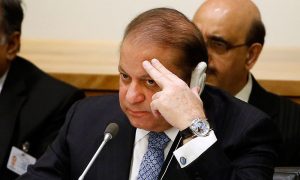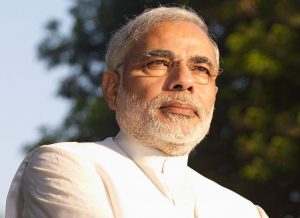Islamabad, September 19 (NIA): In an interesting editorial on Monday, the English language Pakistani daily Dawn draws attention to the importance of two things: first is the Inter-Services Public Relations (ISPR) statement which describes the men who attacked the Indian army camp at Uri in Kashmir as “terrorists”.The second is the fact that Indian Prime Minister Narendra Modi will not be attending the UN General Assembly session for the Pakistani Prime Minister Nawaz Sharif to take him on face to face.
Dawn says: “In a characterization that will not go unnoticed, the ISPR statement referred to ‘terrorists’ attacking Uri and asserted that “no infiltration is allowed from the Pakistani soil” — a position that would be bolstered by a crackdown on all non-state actors allegedly involved in cross-border/LoC terrorism.
“With the UN General Assembly session scheduled to bring together world leaders in New York this week and Prime Minister Nawaz Sharif to address the UNGA on Wednesday, the Uri attack could catapult the Kashmir dispute to the forefront of global issues that will be discussed in New York.”

“While Mr Sharif was in any case expected to strongly reiterate the Pakistani position on Kashmir, the decision by Indian Prime Minister Narendra Modi to skip the session means a potential high-level clash has been averted. Indian Foreign Minister Sushma Swaraj may well be hard-hitting in her own speech, but that will come towards the end of the gathering and several days after Mr Sharif would have spoken.”
In New Delhi itself, the Indian government and army have taken a sober stand with the army publicly ruling out an immediate retaliatory strike. Former Indian army chief, Gen.V.K.Singh, who is now a junior government minister of External Affairs said that a thorough study of what happened at the Uri camp, would have to be done prior to thinking of launching any military offensive.

But as the Dawn edit points out, the situation in Kashmir continues to be tragic.
“The death of 11-year-old Nasir Shafi, whose body was found riddled with pellets used by Indian security forces, has deepened the anger and instigated fresh protests in Indian Held Kashmir (IHK) over the weekend. The vicious and unending clampdown by Indian security forces in IHK ought to have pricked the world’s conscience, but the outside world has prioritized good relations with India over compassion for the oppressed people of Kashmir.”
“Perhaps conscientious voices in India can help point out a fundamental truth about the Kashmir conflict: irrespective of what the Indian government thinks Pakistan has done or is doing, the Kashmir dispute is rooted in a people’s genuine rejection of control by the state of India. Denying that is a hallmark of generations of Indian leaders, but it is a truth that has not changed.”




























































